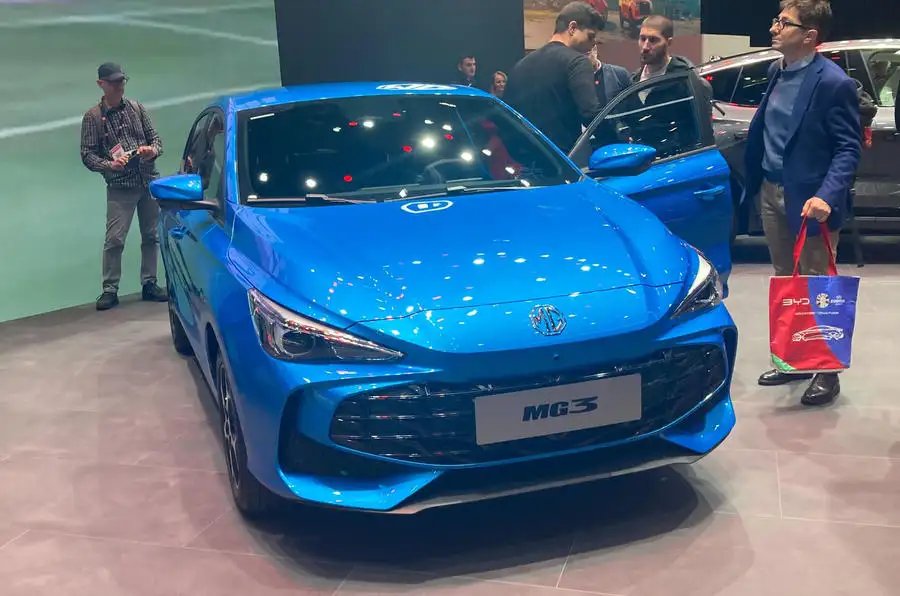MG plans to launch £20k electric city car in 2025

MG plans to launch a £20,000 electric city car in the UK by the end of next year, Autocar can reveal.
Speaking on the sidelines of the new MG 3's unveiling at the Geneva motor show, product and planning boss David Allison outlined plans to expand the Chinese firm’s electric car line-up downwards below the 4, hinting at a compact rival to the Dacia Spring.
A concept for the new model – which could adopt the MG 2 name – already exists, Allison revealed, and could evolve into a production car in less than two years, speed being particularly important in this instance so that MG can take advantage of the dearth of small, affordable EVs currently on the market.
He said: “I think that it's an area that no one has really exploited successfully yet, because the focus has been very much on larger cars and really where they can charge the amount of money for people that are willing to pay it.
“But I think there's a huge opportunity for someone who can get to the four-metre EV for around €20,000 [£17,000]. I think someone can do that with an acceptable range, decent-sized car about that price, and I think that person will clean up with it. And why not us?”
Allison added that he has "been impressed with how quickly things tend to happen" at MG.
He explained: "Product development is clearly a long-term thing, but it's not inconceivable that you could go from concept to production in as little as two years."
"It would be great if we could get something like that in the market by the end of next year. It’s still a couple of years away, to be perfectly honest. But I don't think it's inconceivable. And I think if we can do it, I'd really like to do it."
MG's new entry-level model isn't envisioned to undercut the £17,000 Spring but will nonetheless be comfortably among the cheapest full-sized EVs in Europe, with a price of around £20,000 slotting it in below the likes of the BYD Dolphin and Vauxhall Corsa Electric.
MG will need to put some clear air between any new entry-level EV and the existing £25,000 4 hatchback, in any case, to give it a distinct position on the market.
“We need to start giving people more accessible cars at the price they feel comfortable affording, and that's what this industry is really, really good at,” Allison said.
It's likely to be a bespoke product, designed and engineered primarily to suit the European market, as MG parent company SAIC doesn't currently sell any small urban EVs in China that MG has deemed appropriate for export to Europe. It would, however, be built in China.
MG wouldn't, for example, seek to import its Indian-market Comet city car – which is based on the Wuling Air EV – to the UK, and nor is sibling brand Roewe’s Clever hatchback under consideration.
Nonetheless, there is potential for this new MG to be sold worldwide, with Allison highlighting that SAIC’s European design centre in London works on a whole range of cars that aren’t sold in Europe and the UK is the brand’s best-selling market globally, which gives the UK division a lot of influence over SAIC’s global operations.
“It's the spiritual home of the brand; we're seen as being quite pivotal, quite important,” said Allison.
Notably, he added, MG’s UK engineering centre in Longbridge – on the site of the old MG Rover factory – still plays a significant role in refining MG’s global products for the European market, having tested prototypes of the new Cyberster sports car and 3 supermini for several months in the UK ahead of launch. It would play a similar role in refining a new EV supermini for European dealerships.
It's unclear whether the ‘2’ would use a variation of the larger 4’s Modular Scalable platform, as will be the case for the next-generation ZS crossover and HS SUV. It's likely that MG will seek to use an older, simpler architecture with a view to minimising production costs.
